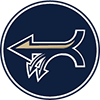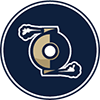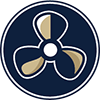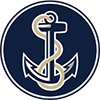POSITION OVERVIEW
This document describes the duties and expectations of the Ship Production and Ship Design Coordinator for the Advanced Shipbuilding and Marine Operations Program at Bath Iron Works. These may change with each academic year, through discussions between you and your supervisor(s). You will be reviewed and evaluated based on how well you perform these duties.
This faculty position is located at Maine Maritime Academy’s (MMA) Maritime Industrial Workforce Development Training Center in Brunswick Maine. The anticipated start date is August 15, 2025, although there is some flexibility to schedule an earlier or later date.
This position will involve teaching duties associated with the Ship Production and Ship Degree programs. This position will primarily involve teaching Engineering-related and/or Math & Physics-related courses. It may also include managerial duties coordinating engineering, math, and/or physics coursework tasks with other instructors or administrators.
The responsibilities for this position will include some or all of the following: teaching, student advising, professional development, scholarship, service, and administrative responsibilities. Teaching is the fundamental responsibility of each faculty member; all faculty members are expected to participate in this activity. In addition, a high degree of “volunteerism/participation” is expected to facilitate the administrative support of the Academy along with effectively imparting your unique capabilities and expertise.
A background with real-world experience applying math, physics, and/or engineering principles to analyze and solve problems is essential for this position. Experience managing programs is highly desirable.
The ideal candidate should possess an understanding of applied mechanics and material properties that may be used in ship design, shipyard operations/production, or industrial applications.
TEACHING
Teaching responsibilities include time spent in the classroom, laboratory, and in immediate preparation for these; maintaining and improving competence in subjects being taught; preparing contemporary teaching materials; conferring with students on course materials; directing individual and group studies and practica; reviewing written examinations and papers; evaluating presentations; supervising independent study projects, supervising or teaching clinical cooperatives or industry programs, and assigning grades according to existing Academy policy.
DUTIES
Teach at undergraduate level in areas allocated by the BIW Program Chair and reviewed from time to time by the Department Chair and/or Dean.
Contribute to the development, planning and implementation of a high quality curriculum.
Assist in the development of learning materials, by preparing syllabus and lesson plans and maintaining records to monitor student progress, achievement and attendance.
Participate in the development, administration and marking of exams and other assessments.
Provide advice and support to students.
Inform students of their progress by promptly returning assignments, quizzes, papers and exams.
Hours vary, but must hold 2-3 office hours weekly for an adjunct teaching 12 credit hours per week, or pro-rated portion thereof for fewer credit hours.
Maintain an awareness and enforce fire and health and safety regulations applicable to the teaching location.
ESSENTIAL SKILLS
Teaching and other forms of public presentation.
Proven record of ability to supervise academic work by undergraduates or graduate students.
Proven record of ability to manage time and work to strict deadlines.
Ability to write clearly and tailor communication style to meet the needs of the recipient.
Ability to work collaboratively.
Commitment to high quality teaching and fostering a positive learning environment for students
Commitment to MMA’s policy of equal opportunity and the ability to work harmoniously with colleagues and students of all genders, cultures and backgrounds
Excellent interpersonal, organizational and communication skills are essential
Ability to maintain composure in stressful situations
High degree of professionalism
Demonstrated integrity and ability to maintain confidentiality
MINIMUM QUALIFICATIONS
Bachelor’s degree or higher from an accredited institution in a field related to position applying for, or demonstrated record of achievement and experience in relevant industry for technical support/lab positions.
Membership in relevant professional organization(s).
Prior successful teaching/training experience desired.
Appropriate professional license(s).
SPECIAL CONDITIONS
Background check is required
Must present original copies of transcripts
COURSES/POSITIONS THAT MAY BE AVAILABLE
BIW EG102 : Introduction to Marine Engineering — A study of marine systems with emphasis on new construction. The course is designed to provide the student with an overview of marine systems and the techniques used to install, test and align these systems. A review of ship construction manufacturing technique is also covered. Rec. 3, Cr. 2.
BIW EG103 : Intro Nondestructive Exam Methods — This course will contain introductory information on the basis of nondestructive testing, including all aspects of visual inspection. This will include discussion of typical sources of material manufacturing discontinuities in raw stock, forgings, castings, tubing/pipe, as well as discontinuities due to grinding, heat treating, welding, and fatigue. This course will also provide training in the visual inspection process, including the basis of visual perception, equipment, and acceptance/rejection criteria. Rec. 2, Cr. 1.
BIW EG105 : Liq Penetrant & Mag Part Exam Methods — This course is designed to provide the necessary training required to perform liquid penetrant (PT) and magnetic particle (MT) testing on various base materials and weld configurations, and to then evaluate the results. Training in each method will be provided such that base material or weld discontinuities can be detected and then evaluated to determine if they are acceptable or unacceptable. Rec. 2, Cr. 1.
BIW EG106 : Confined Space Safety — This course will provide instruction in the various methods, processes, and concepts required to recognize, evaluate, and control confined space hazards. Students will understand the duties associated with the testing of confined spaces. Students will also recognize key uses and limitations of testing instrumentation. Cr. 1.
BIW EG120 : Mechanical Drawing I — An introduction to the basics of mechanical drawing, including equipment and general drawing techniques; geometric construction; multiview (orthographic) drawings; basic isometrics; section views; descriptive geometry; and auxiliary views. Rec. 3, Cr. 3.
BIW EG201 : Ultrasonic Test Methods — This course is designed to provide the necessary training required to perform ultrasonic testing (UT) on various base metals and weld configurations, and then to evaluate those results. Training will be provided on ultrasonic theory and instrument operation, with application to thickness gauging and flaw detection. Further training will be provided on interpreting data to determine discontinuity shape, identity and location, and then evaluating these results to determine acceptability. Cr. 2.
BIW EG203 : Radiographic Test Methods — This course is designed to provide the necessary training required to perform radiographic (RT) testing on various base materials and weld configurations, and to then evaluate the results. Radiological safety measures will be stressed (including state certification). Instruction will include the necessary inspection techniques, film handling, etc. to ensure adequate film contrast and clarity. Further instruction will be provided on interpreting, identifying, and evaluating radiographic film discontinuities. Rec. 2, Cr. 2.
BIW EG215 : Blueprint Reading Methods — A study of the sketches and blueprints used by the structural trades. Rec. 3, Cr. 1.
BIW EG216 : Sheet Metal Methods — A study of the blueprints and procedures used in the sheet metal trade. Rec. 3, Cr. 1.
BIW EG217 : Pipefitting Methods — A study of the blueprints and procedures used in the pipefitting trade. Rec. 3, Cr. 1.
BIW EG218 : Electrical Methods — A study of the blueprints and procedures used in the electrical trade. Rec. 3, Cr. 1.
BIW EG219 : Outside Machinist Methods — A study of the blueprints and procedures used in the outside machinist trade. Rec. 3, Cr. 2.
BIW EG240 : Welding Technology — A course designed to provide insight into the technical aspects of standard welding techniques and practices. It includes a review of material testing and the heat treatment of steel, BIW’s welding processes (SMAW, GTAW, GMAW, GMAW-P, FCAW, SAW), thermal cutting processes (Plasma, Laser, Oxy Fuel and Carbon Arc Gouging) weld procedures, procedure and welder qualification testing, joint designs, welding best practices, weld distortion control, and causes of weld defects. Rec. 2, Cr. 2.
BIW EG241 : Welding Symbols — Introduction to recognizing, reading, interpreting, and drawing welding symbols. Rec. 2, Cr. 1.
BIW EG250 : Mechanical Drawing II — A continuation of Mechanical Drawing I, including parallel and radial line developments as well as triangulation in the drawing of ventilation and piping systems. Practical ventilation, piping, and shipboard application problems are also studied. Prerequisite: BIW EG120. Rec. 3, Cr. 3.
BIW EG252 : Drawing Development and Technology — Students learn to create working drawing packages for the BIW producation trades. Topics include: Drawing formatting including determining best views for production, basic views and details, usage of callbacks and symbols, giveral notes pages, build requirements, dimensions and reference points, line weights and other functional drawing components, drawing types (fabrication, install, etc), tolerances and tolerance stacking and multi-discipline drawings. Other topics as time permits. Rec. 3, Cr. 3.
BIW EG253 : CAD Drawing Development and Technology — Students learn to create working drawing packages for the BIW production trades using 2D technical drawings that meet industry standards using CAD software. Topics include: precision and accuracy, use of symbols, line types, line weights, orthographic projection, Multiview placement, text format, dimensions, section views, and plotting accuracy. A variety of design fields will be reviewed with an emphasis on ASME Y14.5M-2009 standards. Cr. 3.
BIW EG255 : Machine Shop Theory I — A study of the tools, materials, machinery and technology used in the machine shop. Rec. 3, Cr. 3.
BIW EG280 : Electricity I — Introduction to the nature of electricity: resistance, current, voltage, Ohm’s law, network theorems, and AC. Rec. 3, Cr. 2.
BIW EG281 : Electricity II — A continuation of Basic Electricity, introduces inductive and capacitive circuits, meters and transformers. Prerequisite: BIW EG280. Rec. 3, Cr. 3.
BIW EG282 : Electricity III — Topics include construction and troubleshooting of AC and DC generators and motors. Prerequisite: BIW EG281. Rec. 3, Cr. 1.
BIW EG283 : Electricity IV — Topics include development and layout of motor control circuits and uses individual and team labs involving hot and de-energized motor control circuits. Prerequisite: BIW EG282. Rec. 3, Cr. 3.
BIW EG355 : Machine Shop Theory II — A study of the tools, materials, machinery and technology used in the machine shop. Prerequisite: BIW EG255. Rec. 3, Cr. 2.
BIW ET200 : Basic Electronics — Introduction to the nature of electronics, semi-conductor fundamentals, diodes, zener diodes, and their use in power supply and regulator circuits. Rec. 3, Cr. 2.
BIW ET206 : Mechanics I — The study of forces applied to structures. Introduces vector mechanics, static equilibrium, two and three dimensional force systems, distributed forces and friction, linear and angular kinematics, linear and angular kinetics, energy methods, impulse, momentum, kinetics of three-dimensional motions, and vibrations. Structures studied include plane and three-dimensional trusses, frames, beams, and cables. Rec. 3, Cr. 3.
BIW ET207 : Electronics II — A continuation of Basic Electronics, introduces bi-polar transistor operation and characteristics, field effect transistors, thyristors, and optoelectric devices. Prerequisite: BIW ET200. Rec. 3, Cr. 2.
BIW ET208 : Electronics III — Topics include digital concepts: number systems, semiconductor devices for digital circuits, integrated, digital integrated, and digital logical circuits. Boolean algebra and arithmetic circuits will be covered as time permits. Prerequisite: BIW ET207. Rec. 3, Cr. 3.
BIW ET209 : Electronics IV — Topics in counter circuits, shift registers, timers, analog interfacing, memories, microprocessors, fundamentals, and programmable logic controllers will be covered as time permits. Prerequisite: BIW ET208. Rec.3, Cr. 3.
BIW ET230 : Strength of Materials — Study of stresses and strains in structural members including tension, compression, shear, torsion, bending, and combined stresses. Stresses and strains in beams, columns, and indeterminate structure are also examined. Rec. 3, Cr. 3.
BIW ET235 : Material Properties and Testing — A foundation course designed to acquaint the student with the properties and testing procedures of today’s common industrial materials used in ship building. Materials science, application considerations, and analysis of properties of metals, polymers, wood, concrete, material coatings, ceramics and composites will be covered through classroom and laboratory activity. Students will study the destructive and nondestructive testing procedures performed to identify and determine mechanical, physical and other properties for specific industrial and ship building applications. Cr. 3.
BIW ET282 : Design Practices — The goal of this course is to give students the skills required to make sound decisions when developing any design. Emphasis will be on concept development while considering manufacturing processes, cost, material selection, standardization, design evaluation and prototype development. Students will also develop skills and become familiar with types of tradeoffs required in a fast track design environment. Prerequisites: BIW EG252. Rec. 2, Cr. 2.
BIW ET283 : Intro to Marine Design — This Marine Design course presents topics required for understanding ship design at an introductory level, including buoyancy, stability, materials of manufacture, and inter-related systems. Students will be introduced to maritime vocabulary as they develop an understanding of the basic requirements of design and an appreciation for systems engineering principles. The course will cover maritime history, forces on a ship, design for manufacture concepts, and the basic physics, geometry and algebra concepts upon which ship design is based. Students will tour a working shipyard, if possible. Rec. 3, Cr. 3.
BIW ET285 : CAD Design Practices & Applications — The goal of this course is to give students the skills required to make sound decisions when developing any design. Emphasis will be on concept development while considering manufacturing processes, cost, material selection, standardization, design evaluation and prototype development. Students will also develop skills and become familiar with improving efficiency, advanced layout techniques, annotative scales, plotting, solving problems when working with existing drawings, creating hybrid vector-raster drawings, developing symbols and templates, and using software to solve design problems. Cr. 3.
BIW ET306 : Mechanics II — The study of forces applied to structures. Introduces vector mechanics, static equilibrium, two and three dimensional force systems, distributed forces and friction, linear and angular kinematics, linear and angular kinetics, energy methods, impulse, momentum, kinetics of three-dimensional motions, and vibrations. Structures studied include plane and three-dimensional trusses, frames, beams, and cables. Prerequisite: BIW ET206. Rec. 3, Cr. 2.
BIW ET383 : Marine Design II — This Intermediate Marine Design course presents topics required for understanding ship design at an intermediate level and concentrates on detailed design for specific area and disciplines within the shipbuilding disciplines. Students will expand their understanding of the taxonomy and vocabulary of the marine industry especially as it pertains to certain disciplines within the shipbuilding industry. Students will develop an intermediate understanding for the requirements of design and an appreciation for systems engineering principles at a detailed level. The course will cover maritime history as it pertains to the review of case studies which examine the need for requirements and standards and the consequences that occur when those requirements are not met. Students will be introduced to the detailed shipbuilding design discipline data they need to have a working knowledge of for ships systems design including electrical, structural, piping, machinery, HVAC, and hull outfitting with due consideration for safety, human factors, and environmental control requirements. Students will complete a final project that they will present, which combines this working knowledge with a requirements bounded design solution for a ship design that accounts for dynamic forces on a ship, and design for manufacture concepts. Class room analytical work will include concepts involving basic physics, geometry and algebra. Students will tour a working shipyard if possible. Rec. 3, Cr. 3.
Visit jobs.mma.edu



